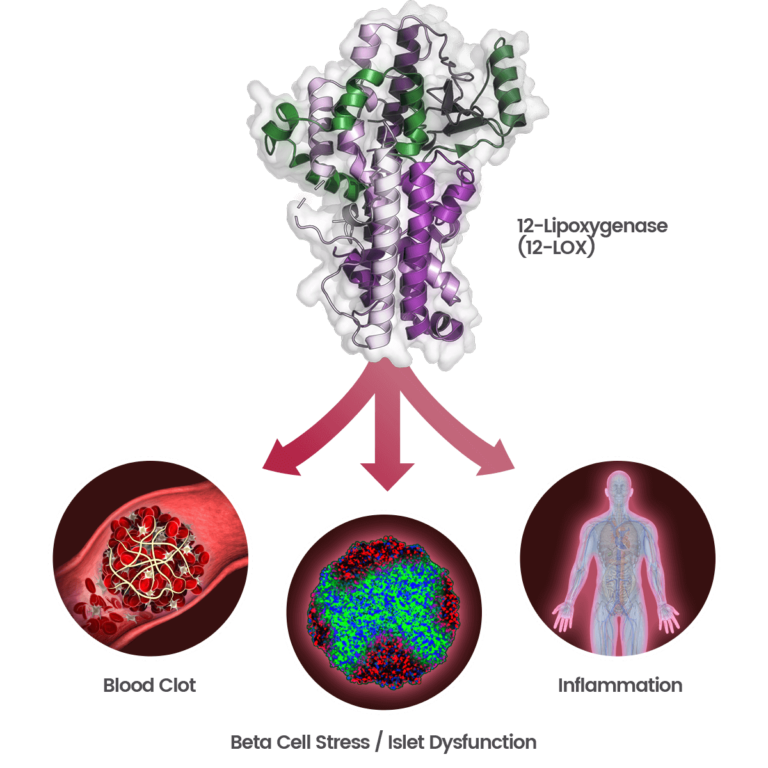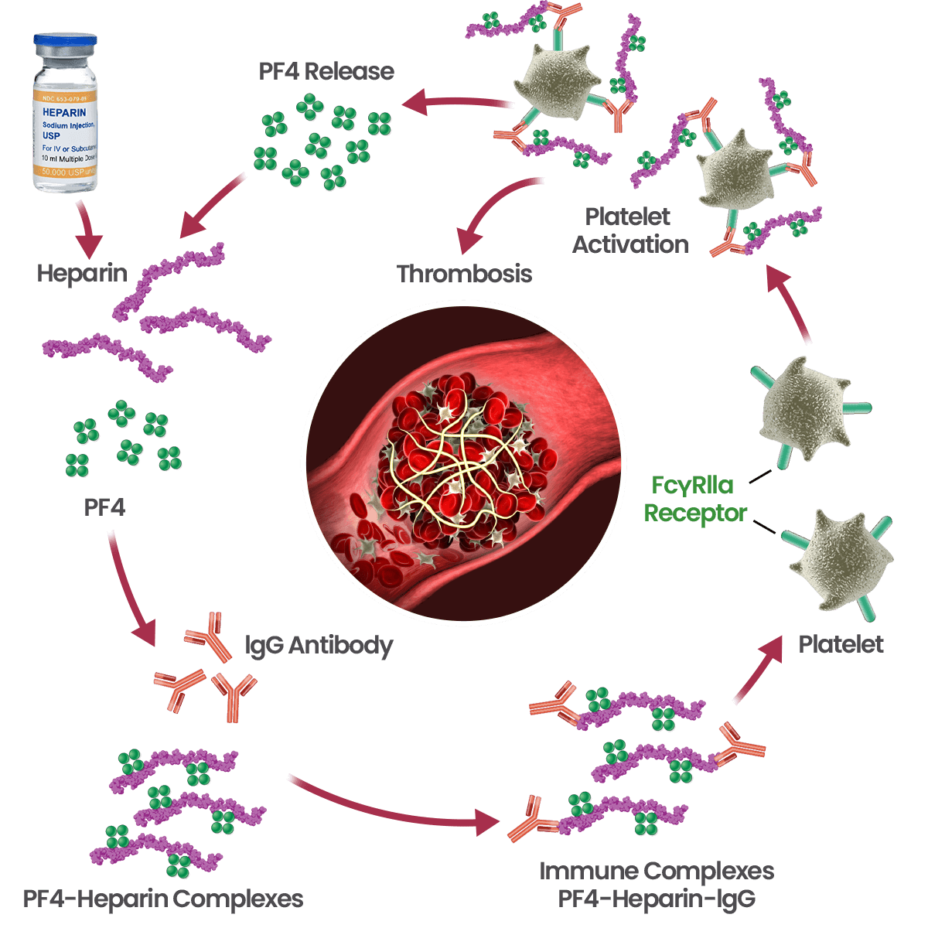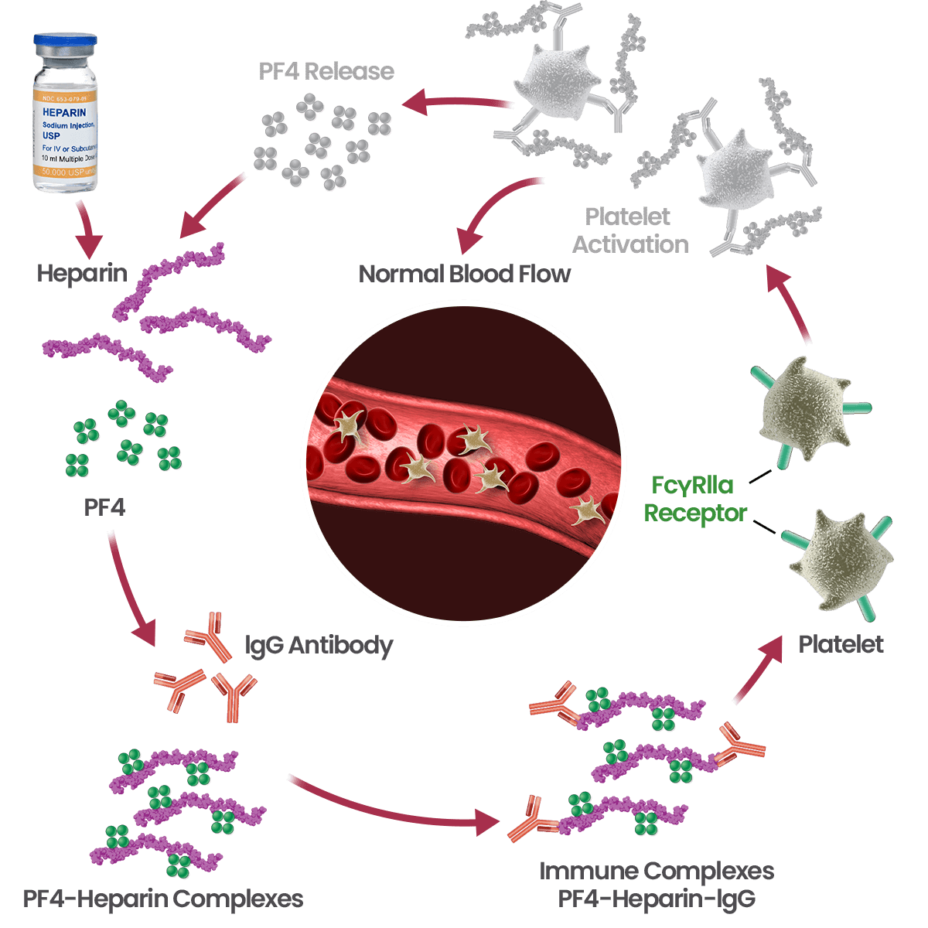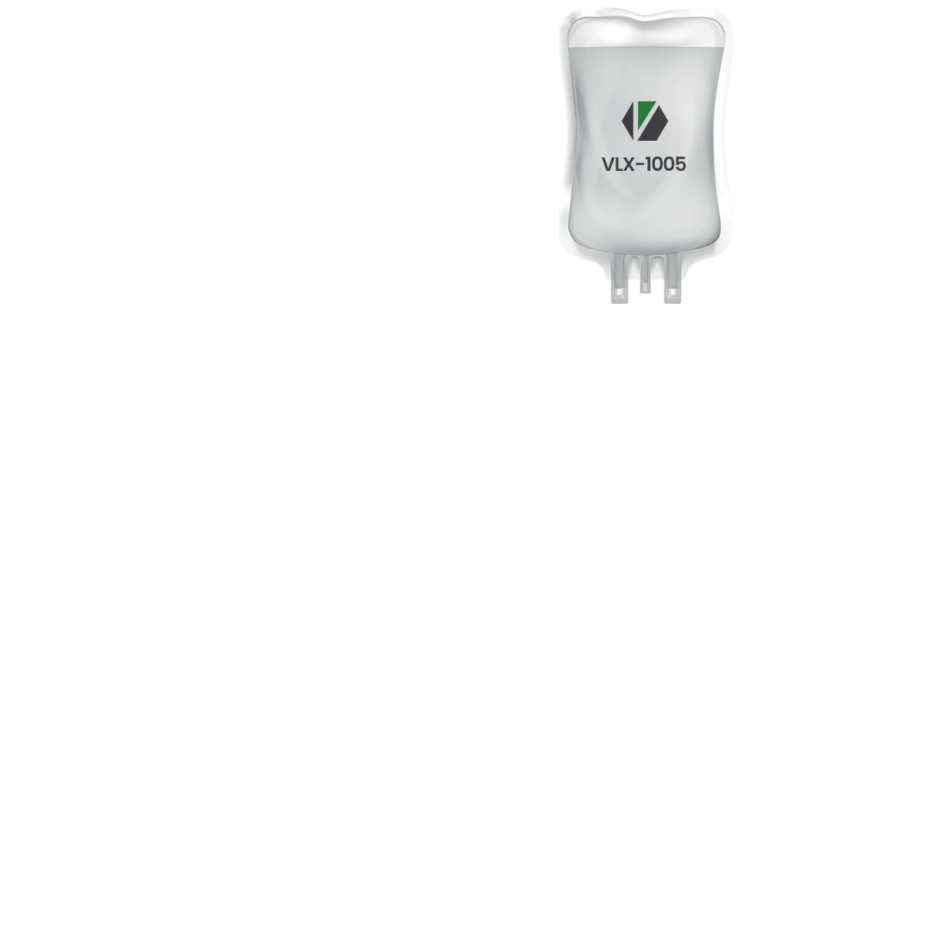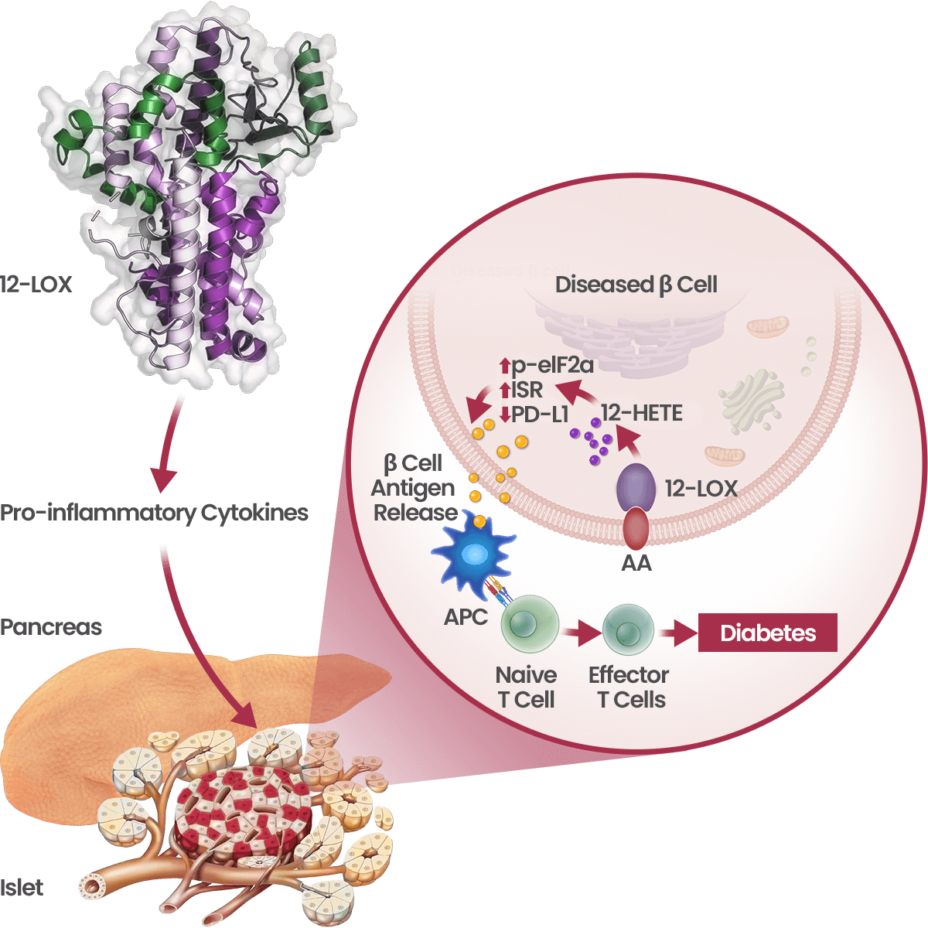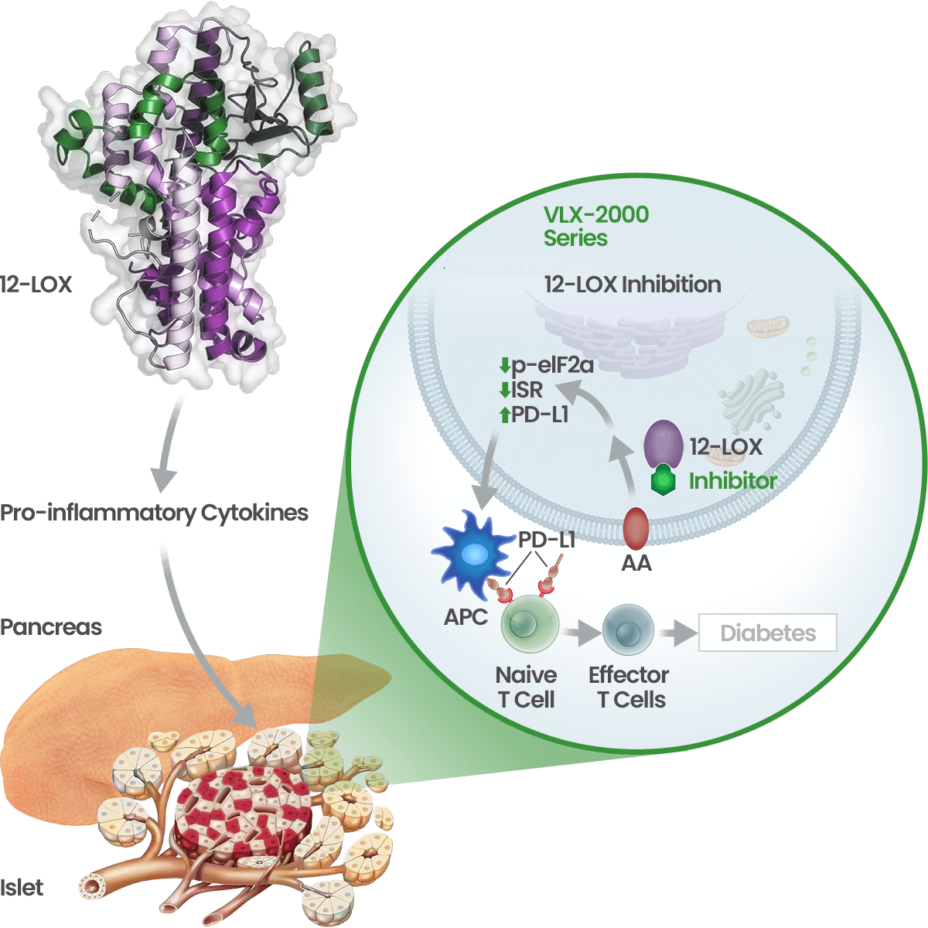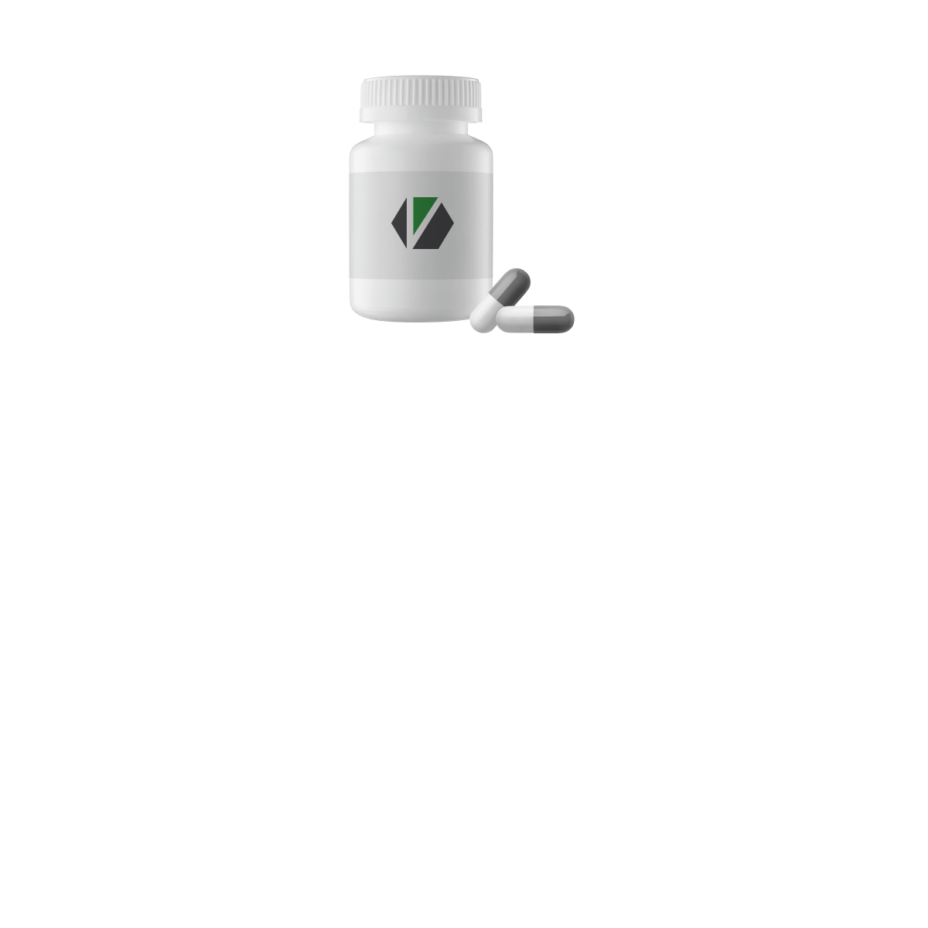12-Lipoxygenase
12-lipoxygenase (12-LOX) oxidizes fatty acid substrates, including arachidonic acid, leading to the production of the proinflammatory metabolite 12-HETE. 12-LOX overexpression and 12-HETE production have been linked to numerous syndromes and diseases, including Heparin-Induced Thrombocytopenia (HIT) and Type 1 Diabetes (T1D), creating the ideal target for small molecule inhibition. These diseases have inadequate treatments and high levels of unmet need. We aim to improve clinical outcomes for these patients with our first-in-class drug products.


